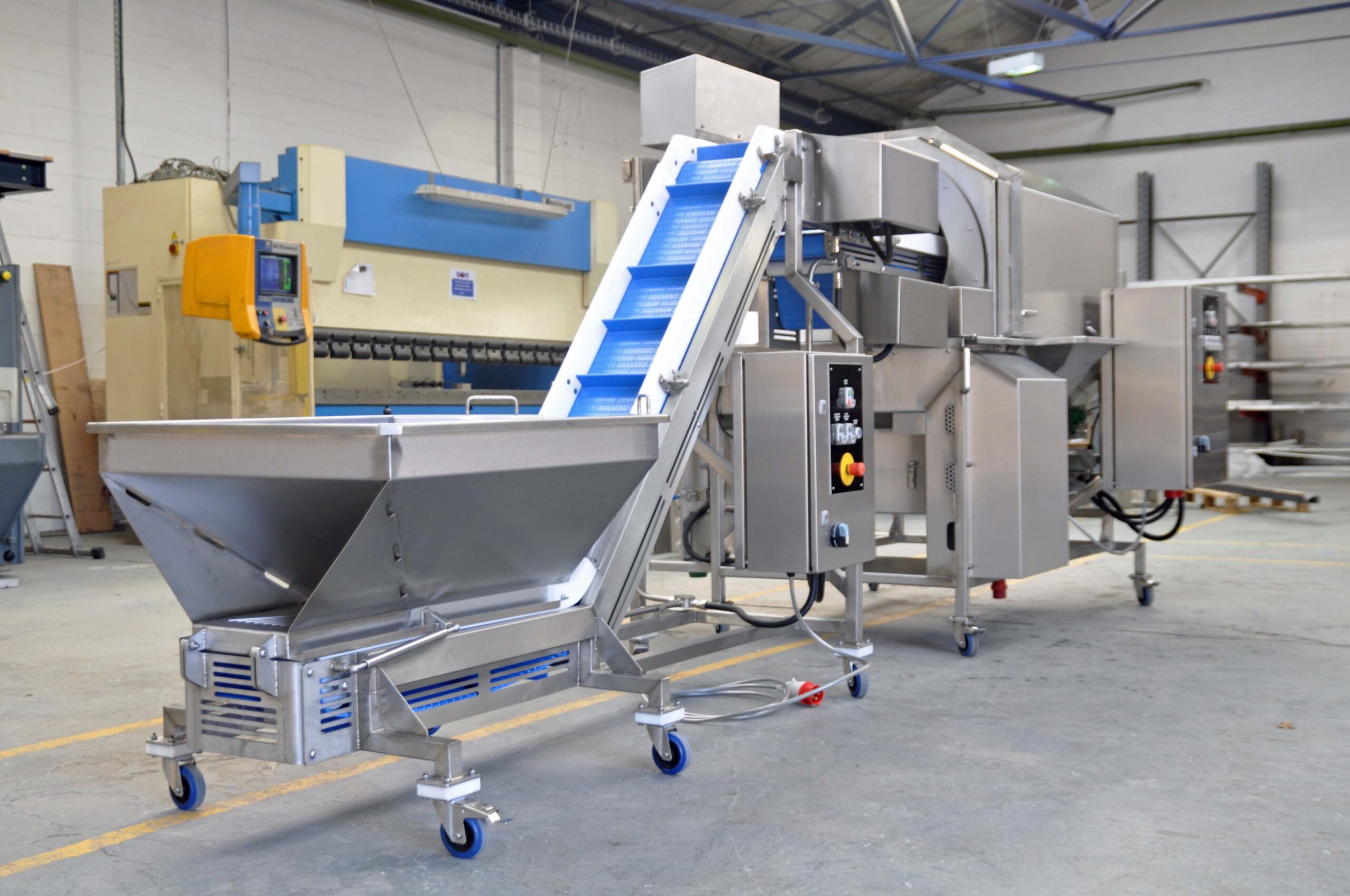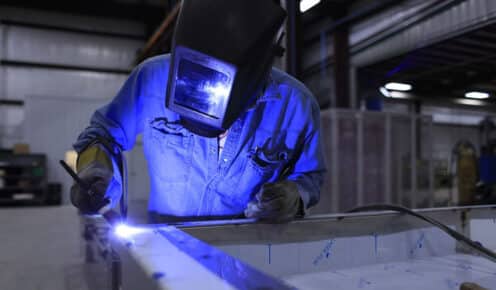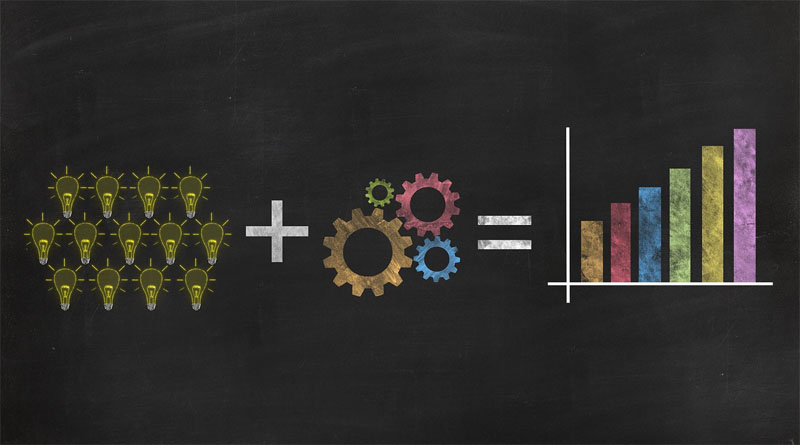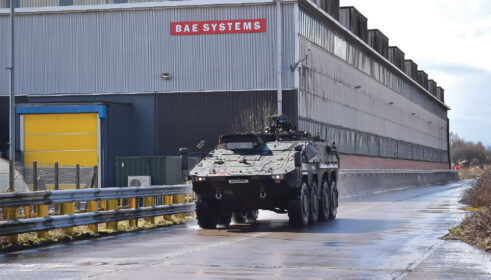Food and beverage production companies have become crucial to the way we live today. Whether these companies are creating ready-made foods or processing ingredients people use to make home-cooked meals, the world has come to rely heavily on the products they bring to market. In fact, the food production industry has already surpassed $2.4 trillion globally, and it’s expected to reach nearly $4.6 trillion within the next few years.
With that being the case, food production companies are under increased pressure to meet the growing demand for their products. They’re also facing significant challenges in terms of sustainability and efficiency. Along the way, these companies must continue to meet the public’s lofty quality expectations while adhering to increasingly stringent safety regulations. Streamlining their food production lines can help foster success in all these aspects and many others. Certain measures can allow them to speed up production, improve safety, cut costs, reduce waste, and ramp up their quality.
Automating Production
Automating production with solutions like Velec Systems factory lines is one of the most effective ways for companies to enhance their food production processes. Automation offers a long list of advantages for businesses in all industries, and food production is no exception. For one, it can speed up production processes well beyond the limits of manual capabilities. That, alone, can improve efficiency and help companies keep up with the growing demand for their products.
Additionally, automation may aid in improving precision and consistency. It can provide highly accurate measurements for ingredients and precise mixing. Automated production machinery can constantly monitor factors like temperature and texture and instantly make adjustments as needed. It also offers greater precision in weighing and packaging. With those advantages in place, companies can guarantee more consistent flavor, quality, and portion sizes. They may also generate less waste since there’s less of a chance for errors.
Automated systems can have a positive impact on virtually every phase of production. They may also allow companies to switch from one stage to the next more quickly and easily. At the same time, they can take over repetitive tasks, like labeling and quality checks, and carry them out more efficiently than human workers. Those are only a few of the advantages automation brings to the table.
Implementing Software Solutions
Along with automated machinery, various software solutions can make a major difference for food production companies. Several options are available in this arena, but enterprise resource planning is one of the most common. It can go a long way toward streamlining production processes while giving companies a range of additional benefits.
ERP solutions cover a range of factors for food production companies, including production planning, quality control, order management, and inventory control. Inventory control is particularly important for food production facilities. It can prevent companies from overstocking or understocking raw materials as well as their finished products. That may save them a great deal of money and warehouse space. ERP software can likewise help companies with employee scheduling to ensure they have the right number of workers on hand at the right times.
The order management aspect of ERP software is also essential. As is the case with inventory control, it can reduce the risks of producing too much product or not having enough on hand to fill customers’ orders. It also helps ensure companies get their products to their customers quickly and effectively. This type of software can also help guarantee companies’ products are billed out properly.
ERP software can extend into supply chain management and other aspects as well. It allows companies to keep track of the products coming into their production facilities for greater quality, better inventory control, and more effective compliance with industry regulations. It may even help them to find more sustainable and cost-effective suppliers for the products they need.
ERP software’s analytics and reporting capabilities can help food production companies predict increases and decreases in demand for their products and modify their production accordingly as well. It can help them manage every link in their supply chains from suppliers to distributors. Those are only a few of the ways ERP software can benefit businesses in the food production industry.
Though ERP software can be an effective tool for food production companies, it’s only one of the available solutions. Several other software options are also on the market, many of which are designed specifically for this industry. Those include recipe management and batch tracking software among many other solutions.
Embracing the Internet of Things
Another way to bolster food production lines is to embrace the ever-growing internet of things. This covers a vast range of possibilities in its own right. For example, machinery can be equipped with sensors that allow companies to monitor their production processes remotely. Data those sensors gather can help companies find areas in which efficiency and productivity are lacking and improve upon them.
Furthermore, certain IoT components can keep track of machinery performance. They can alert companies when their production machinery is on the verge of malfunctioning. They can also create preventative maintenance schedules for machinery based on various factors, like hours in use and declines in efficiency. That may greatly reduce downtime and repair costs.
Besides those factors, IoT technology can help companies track their products through each of their production phases. They may help to boost efficiency and productivity as well as food and worker safety. IoT components can be incorporated into numerous aspects of food production from predictive analytics to quality control and beyond.
Taking Food Production Lines to New Levels
Improving efficiency, minimizing waste, and ensuring quality are crucial for food production facilities. Maintaining productivity and reducing costs are also essential. On top of all that, food production companies must adhere to stringent food safety standards. Those are only a few of the challenges they’re up against. Optimizing their food production lines and processes can help them meet all those needs and many others.
Several strategies have been developed to streamline food production without sacrificing quality and safety. Many of them revolve around the latest technology. Automated machinery, software solutions, and the internet of things are all important pieces of the puzzle. Each of those options can bring food production companies an array of advantages and potentially help them prepare for the future.












